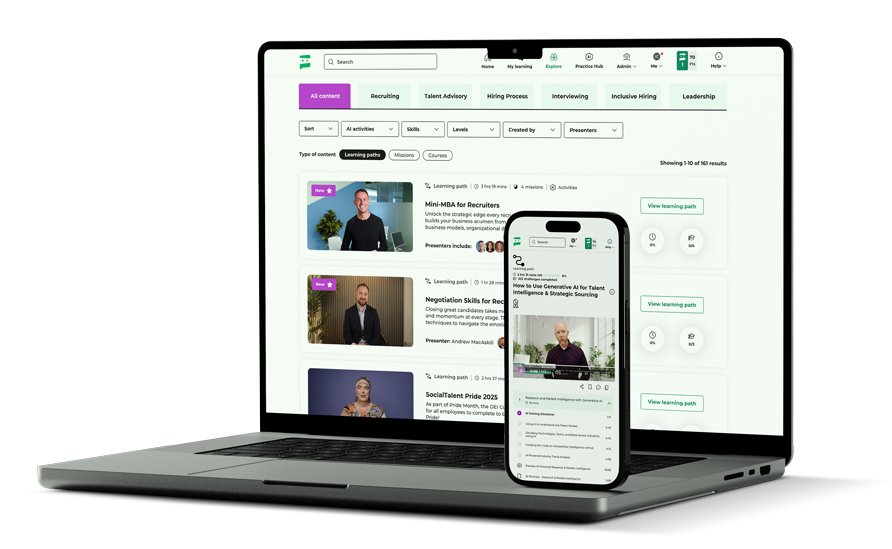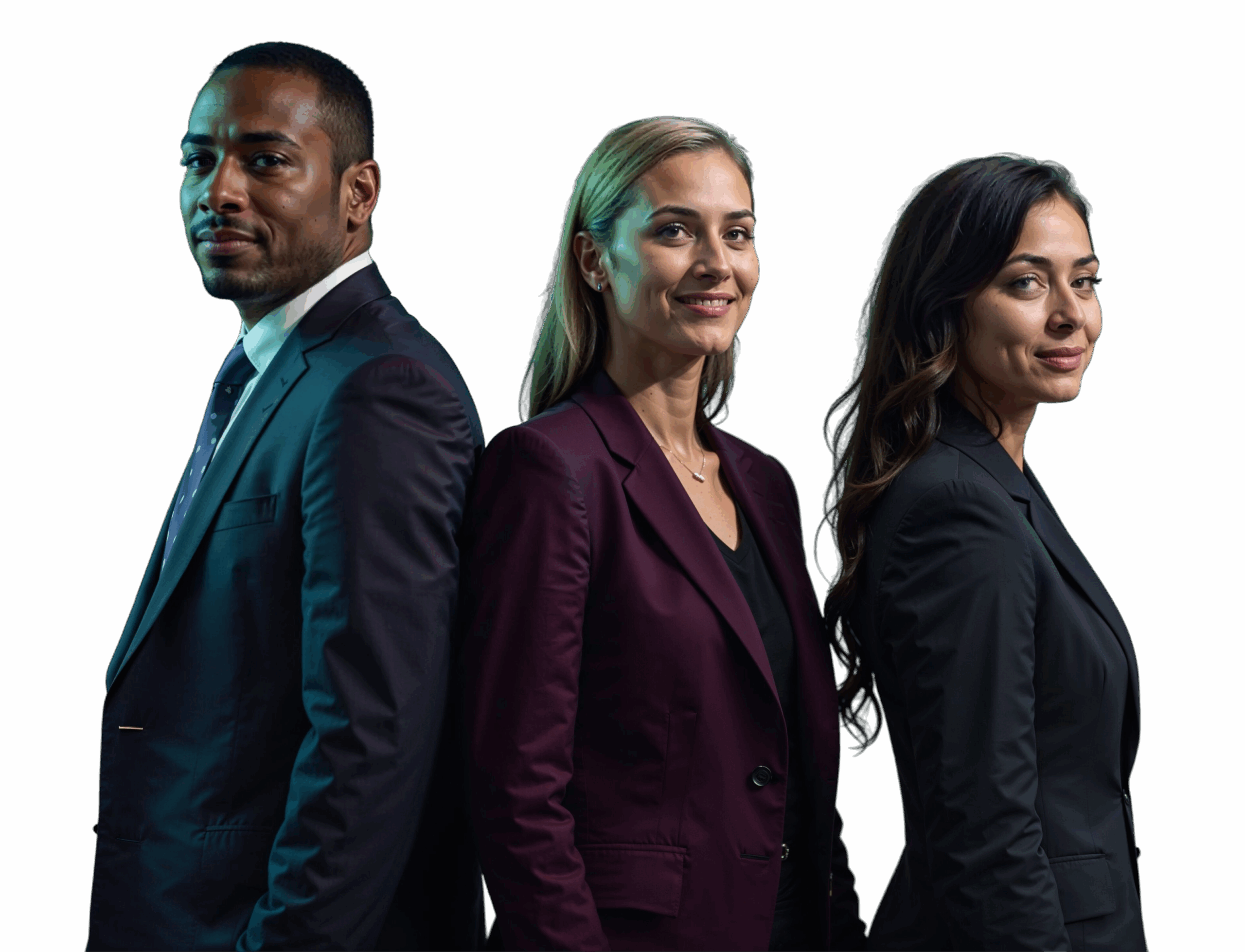
By David Deady
Hiring for a particular technical skill or a number of years of experience is pretty straightforward, but finding a candidate who is not only competent but also adept in interpersonal, problem-solving, and other vital soft skills is key to building high-performing teams.
The role of soft skills in workplace success has grown undeniable, with traits like adaptability, emotional intelligence, and teamwork proving as essential as technical know-how. According to Deloitte, 92% of companies report that human or soft skills matter as much, or more, in today’s business world. Yet, assessing these intangible skills can be challenging. This guide provides practical insights on how to evaluate candidates’ soft skills, ensuring they align with your team’s culture, boost team dynamics, and reduce turnover.

Why Soft Skills Matter in Hiring
Hiring candidates with strong soft skills directly impacts team performance and the overall workplace environment. Individuals who communicate effectively, show resilience in the face of change, and work well within a team contribute to a healthy workplace culture and often exceed expectations in dynamic scenarios. A soft skill-oriented hiring approach improves both hiring accuracy and employee retention. By assessing these skills early, hiring managers can ensure a smoother onboarding process and foster a supportive, engaged, and productive team.
As SocialTalent CEO, Johnny Campbell, states:
“How an individual approaches work, builds relationships, communicates, and adapts fundamentally shapes everything they will do. And these characteristics aren’t role specific either, which makes them even more valuable.”
Learn more: It’s Time to Learn the Hard Truth About Soft Skills
The STAR Framework for Soft Skills Evaluation
The STAR (Situation, Task, Action, Result) framework is a widely accepted approach to behavioral interviewing. This structured method guides candidates to recount specific instances that showcase their skills, making it easier for interviewers to assess their potential fit based on past behavior.
The STAR framework is especially effective for soft skills because it emphasizes concrete examples, reducing the chance of vague or rehearsed responses. By breaking down each answer into Situation, Task, Action, and Result, hiring managers can gauge how candidates approach challenges, interact with others, and respond to unexpected situations—skills that are highly predictive of future performance.
For example:
- Communication: “In a project meeting (Situation), my task was to explain our technical process to stakeholders (Task). I used visual aids and simplified language (Action), which led to a successful buy-in from the team (Result).”
- Adaptability: “When our project scope changed suddenly (Situation), I had to quickly reassess our resources (Task). I organized a brainstorming session to pivot our strategy (Action), resulting in a revised plan that met the new requirements (Result).”
These examples allow interviewers to see beyond generic claims and observe how candidates demonstrate core skills in real situations.
Key Soft Skills to Evaluate
Each role may require different soft skills, but there are some which are commonly valuable across most positions. In their 2024 report on the most sought-after soft skills, LinkedIn state that:
“In a world continuously transformed by artificial intelligence, the enduring value of uniquely human skills should reinforce a fundamental truth: that the changing world of work needs people who are more thoughtful, more curious, and more skilled at navigating change than ever before.”
Below is a list of in-demand soft skills and suggestions for how you can identify these in the interview:
1. Communication
- Sample Question: “Can you describe a time when you had to explain a complex idea to a non-expert?”
- What to Look For: A good communicator simplifies complex information without sacrificing detail. Look for signs that the candidate adapts their style based on the listener’s needs, maintains clarity, and checks for understanding.
2. Adaptability
- Sample Question: “Tell me about a time when you had to adjust to a major change at work.”
- What to Look For: Evaluate how they embraced the change, their problem-solving approach, and whether they maintained productivity. Adaptable candidates demonstrate resilience, think on their feet, and stay composed under pressure.
3. Teamwork
- Sample Question: “Describe a situation where you disagreed with a team member. How was it resolved?”
- What to Look For: Collaboration and conflict resolution are crucial in a team setting. Look for a balanced approach where the candidate listened actively, sought compromise, and contributed to a constructive outcome.
4. Leadership
- Sample Question: “Give an example of a time you led a project. What was the outcome?”
- What to Look For: Strong leaders inspire others, make effective decisions, and guide teams toward shared goals. Observe how the candidate motivates others, takes responsibility, and achieves results through their leadership style.
5. Emotional Intelligence
- Sample Question: “How do you handle stress or pressure?”
- What to Look For: High emotional intelligence includes self-awareness and empathy. Candidates with this skill often remain calm under pressure, respond thoughtfully, and manage interpersonal dynamics well, even in challenging situations.
6. Critical Thinking
- Sample Question: “Describe a time when you had to make a decision with incomplete information.”
- What to Look For: Critical thinkers analyze situations carefully, even with limited information. Look for a structured approach to problem-solving, sound judgment, and evidence of learning from the outcome.
Learn more: Best Practice Interview Techniques
Scoring System for Objective Evaluation
Soft skills can be subjective to evaluate, so a standardized scoring system can help hiring managers assess candidates objectively. Using a simple 1-5 scale for each soft skill category (e.g., 1 = poor, 5 = excellent) can standardize the process, allowing for comparison across candidates. This system also provides a clear record of each candidate’s strengths and areas for improvement.
Tips for Interpreting Candidate Responses
When evaluating soft skills, it’s important to look beyond the words themselves. Here’s how to get a deeper understanding:
- Listen for Specific Examples: Avoid vague answers by asking candidates to give concrete, detailed examples. Specifics indicate a candidate’s authenticity and help interviewers gauge how well they can apply their skills in practical scenarios.
- Evaluate the Thought Process: Pay attention to how candidates articulate their reasoning. This insight reveals their problem-solving abilities, critical thinking, and how they approach complex situations.
- Consider Body Language and Engagement: Non-verbal cues like eye contact, posture, and enthusiasm can also provide insight into the candidate’s confidence, communication skills, and level of engagement. But always remember, some candidates may struggle with this due to disability or neurodiversity, for example, and it may not be an accurate assessment of the overall situation.
Overcoming Common Challenges in Soft Skills Evaluation
Assessing soft skills comes with its own set of challenges. Here are some of the most common obstacles and how to address them:
- Lack of Standardization: Soft skills can be interpreted differently by interviewers, making standardization crucial. Establishing a competency-based approach with defined criteria helps reduce subjective bias and keeps evaluations consistent.
- Difficulty Quantifying Responses: Soft skills are nuanced and don’t lend themselves to numerical measurement easily. Implementing a structured scoring system, as mentioned above, can provide a more quantifiable approach.
- Potential for Bias: Interviewer bias can creep in, especially when soft skills are assessed subjectively. Conducting panel interviews, where multiple team members rate candidates’ responses, can mitigate individual biases.
- Limited Real-World Validation: Interviews offer only a glimpse into a candidate’s real behavior. To add depth, consider implementing practical exercises or work simulations that showcase how candidates apply their skills in realistic scenarios.
- Candidate Nerves: Interview stress can affect candidates’ responses, sometimes masking their true abilities. Creating a welcoming environment, expressing empathy, and giving candidates time to collect their thoughts can help them feel more comfortable, leading to more genuine responses.
Conclusion
Evaluating soft skills during interviews is critical for selecting candidates who will thrive within your team and contribute positively to your company’s culture. A structured, competency-based approach to assessing soft skills, supported by the STAR framework and a consistent scoring system, allows hiring managers to make informed decisions. By focusing on specific skills like communication, adaptability, and emotional intelligence, and overcoming common challenges, you can improve hiring accuracy and build stronger, more cohesive teams. Soft skills may be harder to measure than technical skills, but with the right approach, they become a valuable tool for predicting a candidate’s success.




